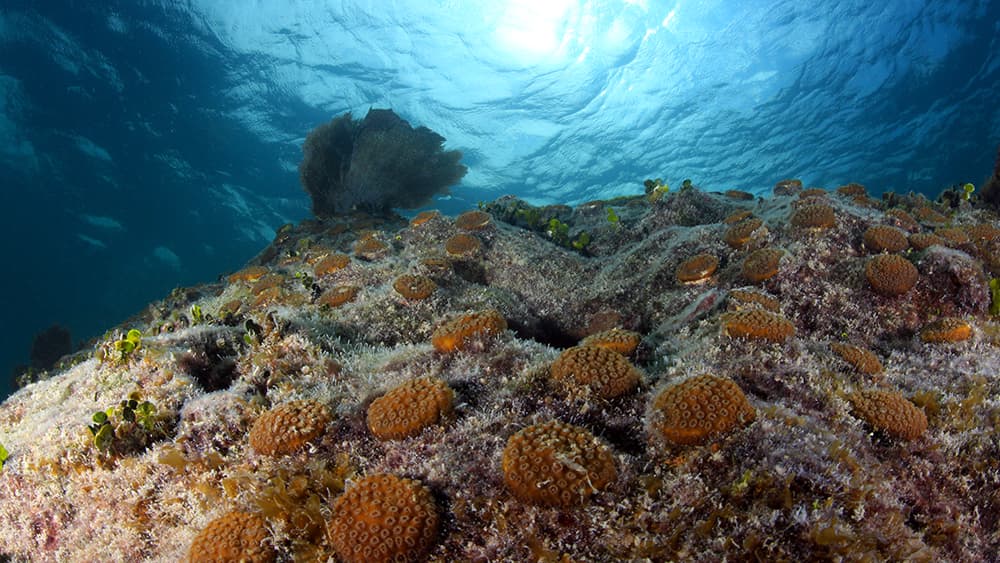
The World Does Not Stand Still - Understanding the Impacts of Climate Change in Papahānaumokuākea
Current and future impacts from climate change are considered to be the single greatest threat to the long-term integrity of Papahānaumokuākea. The effects of climate change are already being observed.

Mission: Iconic Reefs, An Ambitious Plan to Restore 7 Sites in the Florida Keys
Over the last 40 years, coral reefs in the Florida Keys, like reefs worldwide, have suffered dramatic declines. Nearly 90 percent of the live corals that once dominated the reefs have been lost. Emergency action is required to change the trajectory of the health of coral reefs in the Keys.

Estimating Coral Feeding Habits from Space
Reef-building corals rely on a symbiosis with microscopic algae for much of their energetic needs. Rising ocean temperatures threaten this symbiosis and can cause it to break down in a process known as coral bleaching, which is one of the primary threats to the persistence of coral reef ecosystems globally.

How NASA Satellites Help Protect the Coral Reefs of Papahānaumokuākea Marine National Monument
An extensive outbreak of a newly identified algae, Chondria tumulosa, threatens the survival of the coral reefs at Manawai (Pearl and Hermes) with the potential to spread to nearby atolls in Papahānaumokuākea Marine National Monument.

3D Modeling Coral Reefs: How Data Science Helps Us Better Understand Coral Reef Ecosystems
Coral reefs are both culturally and economically important, yet these ecosystems still remain poorly understood. Join Dr. John Burns to learn how the Multiscale Environmental Graphical Analysis Lab uses cutting-edge 3D technology to map reefs in high-resolution.

Gardening Corals for Reef Restoration
As coral reefs decline globally, interest in using coral gardening techniques for reef restoration is increasing. This webinar presentation will review well-established and cutting-edge techniques for propagating and restoring corals, as well as experimental work focused on identifying corals that can survive future ocean conditions.

How are we doing? 10 Years of Status and Trends of Resources in the Papahānaumokuākea Marine National Monument
The Papahānaumokuākea Marine National Monument recently conducted an assessment of 10 years of status and trends of living resources, habitats, ocean conditions, maritime and cultural archaeological resources, and the human activities and natural events that affect them. Jonathan Martinez, Ph.D, the lead editor and author of several sections, will present findings from the report across all resource areas with an emphasis on assessments for coral reef ecosystems during this talk.

What is Coral Bleaching?
Coral bleaching is one of the side effects of an increasingly warmer ocean. Episodes of coral bleaching are happening more regularly and with greater severity as the years progress.